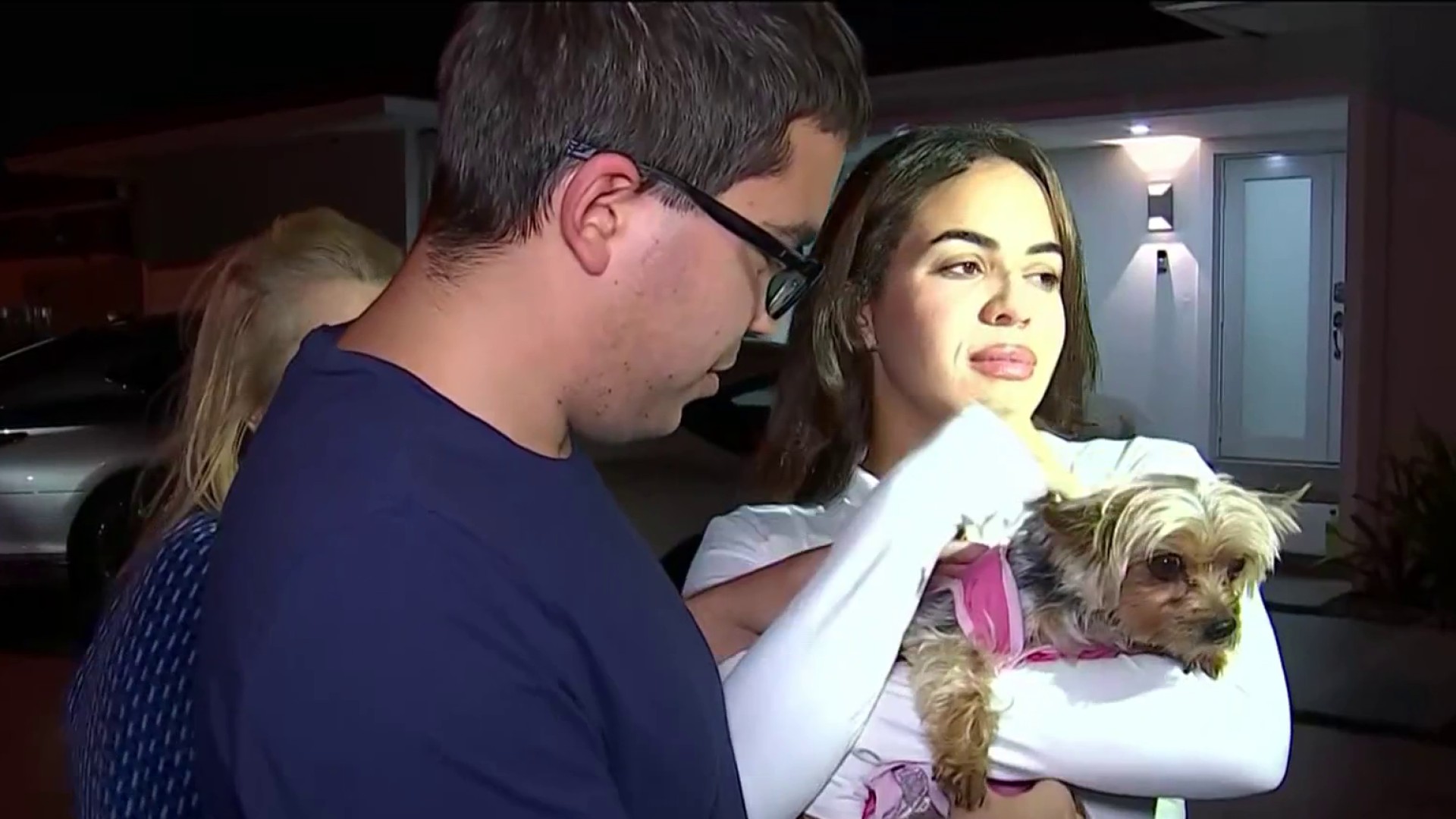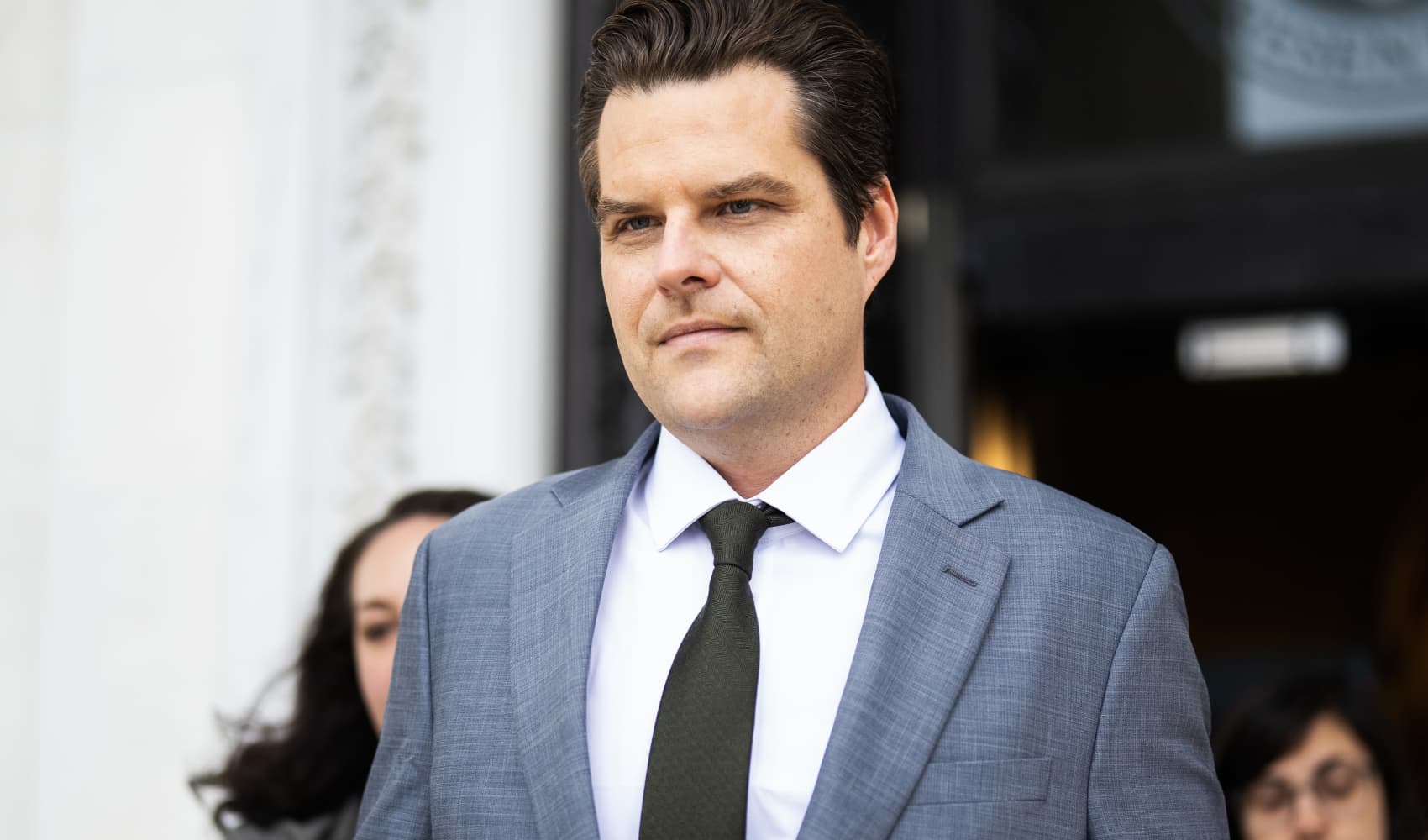The South Florida Marine veteran who for months was detained at a Mexican prison for bringing an unloaded shotgun into the country has been freed, officials and his lawyer said late Friday.
The attorney for Jon Hammar tweeted Friday night that his client had been released from a detention center in Matamoros, Mexico. U.S. officials were planning to drive the 27-year-old Hammar across the border at Brownsville, Texas.
"He's out. Going home," wrote Eddie Varon Levy in a tweet.
South Florida Congresswoman Ileana Ros-Lehtinen confirmed Hammar's release in a statement. She said he was "back safely in the United States."
"These past few months have been an absolute nightmare for Jon and his family, and I am so relieved that this whole ordeal will soon be over," the Ros-Lehtinen said. "I am overcome with joy knowing that Jon will be spending Christmas with his parents, family and friends."
Several members of Congress said earlier Friday that a judge had agreed to free Hammar.
U.S. Sen. Bill Nelson's office said in a statement that according to a defense attorney, 27-year-old Jon Hammar was being held at the Matamoros prison on a gun charge, but at a hearing, it was determined he had no intent to commit a crime by taking the firearm to Mexico.
"No American should be in a Mexican jail for five months without being able to have his case in front of a judge," Nelson said Friday. "We're grateful; this is a good Christmas present."
With the judge’s ruling, Hammar was expected to be released after noon on Friday, Ros-Lehtinen said at a press conference earlier in the day.
“Our Marine hero, our local hero, will be freed today from a Mexican prison,” she said. “He’s been there chained to his bed in terrible condition since August for a trumped-up gun charge that should have never been leveled against him.”
South Florida Family Steps Up Pressure to Get Ex-Marine Son Out of Mexican Prison
Local
The Marine veteran’s mother notified congressional members of her son’s pending release early Friday. The news was confirmed by a defense lawyer, the State Department and the Mexican embassy, according to spokespeople for Nelson and Ros-Lehtinen.
His mother, Olivia Hammar, called Ros-Lehtinen’s office to say, “Hallelujah! Prayers work and hard work pays off,” Ros-Lehtinen said.
Friday, the U.S. Consulate was standing by to safely escort the former Marine to the United States. Instead of being taken on a plane, Hammar was to be driven across the Mexican border to Texas.
Ros-Lehtinen said the Hammar family is thankful for the community’s support. “He will be home for Christmas,” Ros-Lehtinen said. “The family has been so grateful.”
At his home in Palmetto Bay, Hammar's mother anxiously waited until she was assured he was safe and in the U.S.
"Everybody is excited and still cautiously optimistic. Of course, we have every reason to believe this will go well. We are still very concerned about his safety throughout this whole time. Until he gets across the border, we're not going to rest," said family friend Maggie Hays.
Palmetto Bay Family Hoping To Get Marine Veteran Son out of Mexican Prison, Home Safe
Hammar served in Iraq and Afghanistan before being honorably discharged from the Marines in 2007.
His service as a Marine included stints in Afghanistan – where he worked a security detail for President Hamid Karzai –and patrols in Iraq.
Hammar's family said he was deeply hurt by the loss of his close friend, Marine Cpl. Albert Gettings, in combat in Iraq's Fallujah section. His mother said surfing helped him cope after he was diagnosed with post-traumatic stress disorder.
A getaway is just what Hammar needed, so in August, Hammar and a friend set out on a road trip headed for Costa Rica, his family said. In Costa Rica, they would surf. They planned to drive across the Mexican border near Matamoros in their Winnebago filled with surfboards and camping gear.
Hammar asked U.S. border agents what to do with the unloaded shotgun, which his family said belonged to his great-grandfather.
But when the pair crossed the border and handed the paperwork to Mexican officials, they impounded the RV and jailed the men, saying it was illegal to carry that type of gun. Hammar's friend was later released because the gun did not belong to him.
Olivia Hammar has said the weapon was taken by Hammar to shoot birds. "In addition to being somewhat helpless, he is enraged," she said.
Of the firearm, Ros-Lehtinen said: "He goes to register it and he gets arrested for his trouble. They have made this into such a huge issue."
In recent months, pressure had mounted for Hammar's release. Congressional members worked with U.S. Customs and Border Protection, the State Department and Mexican authorities to arrange Hammar's release.
A week ago, Ros-Lehtinen said that she had written a letter to Hillary Clinton, Janet Napolitano and others, asking them to intervene.
Dozens of members of Congress signed the letter, Ros-Lehtinen said. Nelson said he had appealed to the Mexican ambassador to the United States.
Local News
The family's attorney said Mexican law prohibits civilians from carrying certain types of guns, like sawed-off shotguns, which can be more easily concealed. Mexican law prohibits shotguns with a barrel of less than 25 inches.
Family attorney Eddie Varon-Levy said Mexican officials measured the barrel on Hammar's shotgun as 24 inches. It has not been sawed off.
Varon-Levy questioned the way Mexican officials measured the gun, because the measurements can differ depending on where they are taken on the barrel.
Hammar faced 12 years in prison, but Varon-Levy had called that unlikely.
At the Matamoros prison, Hammar was being held in one of the most dangerous areas in Mexico.
Matamoros is the long-time headquarters of the Gulf Cartel, which has been engaged in a bloody struggle with its former security guards, the Zetas, since early 2010 for the lucrative drug routes along the eastern end of the Texas-Mexico border.
An October 2011 fight among inmates at the prison left 20 dead and 12 injured.
At first Hammar was held with the general population, filled mostly with members of drug cartels. But then he was periodically chained to his bed in a cell by himself, his father said.



